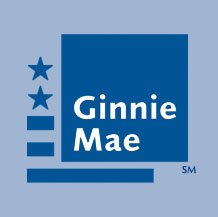 W
WAn Adequate Public Facilities Ordinance, APFO, or Concurrency Regulation is an American legislative method to tie public infrastructure to growth for a region.
 W
WBlockbusting is a business process of U.S. real estate agents and building developers to convince white property owners to sell their house at low prices, which they do by promoting fear in those house owners that racial minorities will soon be moving into the neighborhood. The agents then sell those same houses at much higher prices to black families desperate to escape the overcrowded ghettos. Blockbusting became possible after the legislative and judicial dismantling of legally protected racially segregated real estate practices after World War II. By the 1980s it largely disappeared as a business practice, after changes in law and the real estate market.
 W
WThe California Department of Real Estate (DRE) is the state agency responsible for administering real estate license examinations, issuing real estate licenses and certain mortgage loan originator endorsements to such licensees; regulating and disciplining real estate licensees, and qualifying certain residential subdivision offerings.
 W
WCheckerboarding refers to a situation where land ownership is intermingled between two or more owners, resulting in a checkerboard pattern. Checkerboarding is prevalent in the Western United States due to its extensive use in railroad grants for western expansion, although it had its beginnings in the canal land grant era.
 W
WThe US Commercial Real Estate Index ("CREI") is designed to demonstrate the relative strength of the US Commercial Real Estate market. The index is composed of eight economic drivers and is calculated weekly.
 W
WCommon-interest development (CID) is the fastest growing form of housing in the world today. They include condominiums, community apartments, planned developments, and stock cooperatives. The ownership benefits of a CID are having rights to an undivided interest in common areas and amenities which might prove to be too expensive to be solely owned. For example, an owner would like to have a pool but cannot afford one. When buying a condominium with a pool in a CID of one hundred units, an owner would have use of that pool for basically one-hundredth the cost due to sharing the cost with the other 99 owners. Timeshare, or vacation ownership, is the same concept. Where buying a second home for vacation purposes might not be financially possible, buying a week or two can be when sharing the overall costs with other participants.
 W
WA county surveyor is a public official in the United States and the United Kingdom.
 W
WThe Federal Financial Institutions Examination Council (FFIEC) is a formal U.S. government interagency body composed of five banking regulators that is "empowered to prescribe uniform principles, standards, and report forms to promote uniformity in the supervision of financial institutions". It also oversees real estate appraisal in the United States. Its regulations are contained in title 12 of the Code of Federal Regulations.
 W
WThe General Land Office (GLO) was an independent agency of the United States government responsible for public domain lands in the United States. It was created in 1812 to take over functions previously conducted by the United States Department of the Treasury. Starting with the passage of the Land Ordinance of 1785, which created the Public Land Survey System, the Treasury Department had already overseen the survey of the "Northwest Territory", including what is now the state of Ohio.
 W
WThe Government National Mortgage Association (GNMA), or Ginnie Mae, is a government-owned corporation of the United States Federal Government within the Department of Housing and Urban Development (HUD). It was founded in 1968 and works to expand affordable housing by guaranteeing housing loans (mortgages) thereby lowering financing costs such as interest rates for those loans. It does that through guaranteeing to investors the on-time payment of mortgage-backed securities (MBS) even if the underlining mortgages go into default and the homes are foreclosed upon.
 W
WMetro. Reg'l Info. Sys., Inc. v. Am. Home Realty Network, Inc., 722 F.3d 591 (2013)., was a United States Court of Appeals for the Fourth Circuit case in which a court held two issues:The copyright owner of a collective work, such as an automated database, was not required by a pre-suit copyright registration requirement to identify names of creators and titles of individual work. By clicking yes to the term of use and uploading photograph, is sufficient to writing component in assignment of right under 17 U.S.C. § 204
 W
WThe National Association of Home Builders (NAHB) is one of the largest trade associations in the United States, representing the interests of home builders, developers, contractors, and associated businesses. The association works to ensure that housing is a national priority and that all Americans have access to safe, decent and affordable housing, whether they choose to buy a home or rent. NAHB is headquartered in Washington, D.C.
 W
WThe Public Land Survey System (PLSS) is the surveying method developed and used in the United States to plat, or divide, real property for sale and settling. Also known as the Rectangular Survey System, it was created by the Land Ordinance of 1785 to survey land ceded to the United States by the Treaty of Paris in 1783, following the end of the American Revolution. Beginning with the Seven Ranges, in present-day Ohio, the PLSS has been used as the primary survey method in the United States. Following the passage of the Northwest Ordinance, in 1787, the Surveyor General of the Northwest Territory platted lands in the Northwest Territory. The Surveyor General was later merged with the General Land Office, which later became a part of the U.S. Bureau of Land Management (BLM). Today, the BLM controls the survey, sale, and settling of the new lands.
 W
WThe Real Estate Roundtable is a non-profit public policy organization based in Washington, D.C. that represents the interests of real estate. It focuses on policy areas governing tax, capital and credit, environment and energy, and homeland security. The Real Estate Roundtable holds four annual meetings in Washington, D.C. and publishes a weekly electronic newsletter as well as its Annual Report and Policy Agenda.
 W
WSwampland in Florida is a figure of speech referring to real estate scams in which a seller misrepresents unusable swampland as developable property. These types of unseen property scams became widely known in the United States in the 20th century, and the phrase is often used metaphorically for any scam that misrepresents what is being sold. Expressions like "If you believe that, then I have swampland in Florida to sell you", suggests the recipient is gullible enough to fall for an obvious fraud. Similar phrases involve "selling" the Brooklyn Bridge or nonexistent "oceanfront property in Arizona".
 W
WThe Texas Real Estate Commission (TREC) is the state agency that governs real estate practices in the state of Texas. The agency is headquartered at 1700 North Congress in Austin.
 W
WThe United States Department of Housing and Urban Development (HUD) is a Cabinet department in the executive branch of the United States federal government. Although its beginnings were in the House and Home Financing Agency, it was founded as a Cabinet department in 1965, as part of the "Great Society" program of President Lyndon Johnson, to develop and execute policies on housing and metropolises.